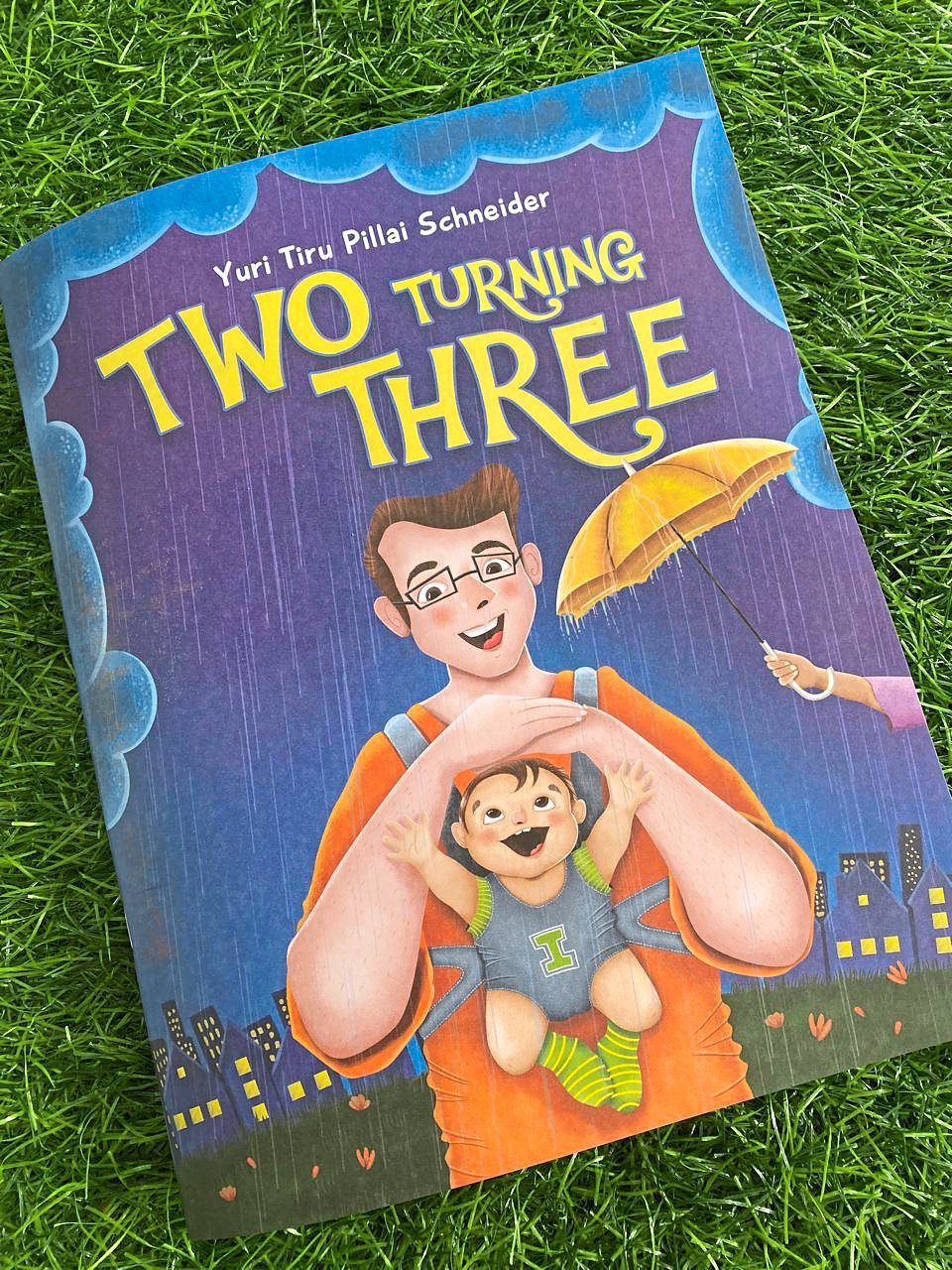Two Turning Three helps divorcing parents start necessary conversations with their children. Photo: Yuri Tiru Pillai
Children's book author Yuri Tiru Pillai, 35, has recently published her second book titled Two Turning Three about how parents can talk to their children about divorce.
“The reality is that not all marriages work out, and for those that end in divorce, often, the ones who are impacted the most are the children. The book illustrates how we can include children in the divorce conversation if it happens in their family, and how it should be managed through healthy co-parenting arrangements,” she says.
She reveals that the story is anchored in her 42-year-old husband, Sven Schneider’s life with his ex-spouse before she entered their lives.
“Two Turning Three is the tale of a young boy called Ian and his journey in life, as he spends his toddlerhood with ‘Papa’, his single father. It highlights the life of a family before and after a divorce, how it affects the child, and it raises awareness on the importance of putting the child’s well-being at the centre of every parent’s life and how to do so through healthy co-parenting arrangements.”
As a single parent to a then 18-month-old boy, Schneider had to work hard, “juggling his career and fatherhood to ensure he could give his son Ian a happy life”.
“Ian may have two homes, but we’ll always be one family,” says Schneider, adding that regardless of “whether Ian is at his home or ‘Mami’ (his ex-wife)’s home, he will always be loved and cared for”.
“How do we tell our children in simple words that their world is about to divide, and what will their lives be like living in two homes? These are questions that my book seeks to answer,” says Yuri, who is stepmother or ‘Mimi” to Ian.
Divorce affects children physically, mentally and emotionally.
“When a divorce happens and children start their life commuting from one home to another, physiological needs such as shelter/home and food/diet, are some of the most common reasons why co-parents argue based on feedback from my readers,” she says.
“Children from such environments tend to display a tendency towards isolation, tantrums, depression, anxiety, fear of abandonment, guilt (they blame themselves for their parents’ separation). And, their academic performance deteriorates if they aren’t able to focus on their studies.
“If we don’t deal with the mental and emotional baggage, it follows the child all the way into adulthood, impacting their future relationships with their spouse/life partner, friends, etc,” she adds.
Yuri highlights that “ironically, parents who decide to divorce have to come together more than ever before because it’s not the divorce that damages children but how the parents choose to divorce and co-parent, that makes or breaks them”.
“If parents divorce responsibly, it can help mitigate the negative impact on the child.”
Some of the strategies to help the child cope include: communicating clearly and frequently (be transparent and involve them in the divorce conversation from the beginning), offering assurance with empathy (it’s not the child’s fault and they’re still loved no matter which parent’s home they’re at), limiting changes to routines (keep established routines such as mealtimes, bath time, playtime, bedtime, etc to maintain sense of normality), she concludes.












